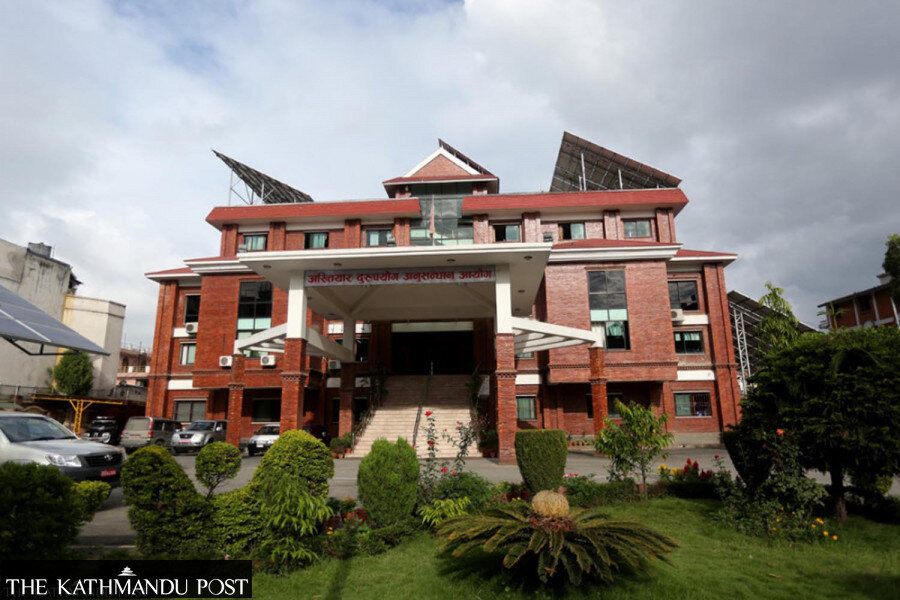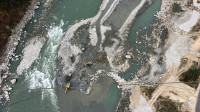Politics
Panel set up to settle dispute over widening CIAA’s jurisdiction
Congress and UML lawmakers are at odds over a bill expanding anti-graft body’s oversight to private sector.
Binod Ghimire
The State Affairs and Good Governance Committee of the House of Representatives has constituted a nine-member panel to decide whether corruption in private entities should fall under the ambit of the Commission for the Investigation of Abuse of Authority (CIAA).
The panel had to be formed as crossparty lawmakers were divided over a provision in the bill to amend the Corruption Prevention Act of 2002 that proposes bringing the private sector under the purview of the anti-graft body. While the Nepali Congress lawmakers are strongly opposed to the provision, the CPN-UML lawmakers said the commission should be allowed to scrutinise private organisations that get any form of government grants.
The amendment to Clause (2) of the Act says banks and medical colleges would fall under the commission’s purview. The National Assembly endorsed the bill in April last year and sent it to the lower house for a decision. However, lawmakers in the House committee are still divided on the provision.
“The commission cannot be allowed to interfere in the private sector. We have other mechanisms to oversee the sector,” said Hridaya Ram Thani of the Congress while taking part in the deliberations on Thursday. The CPN (Unified Socialist) lawmakers seconded Thani’s view.
However, Raghuji Pant from the UML said the constitutional commission should be allowed to investigate financial wrongdoings in the private sector entities that get government support. The Rastriya Swatantra Party President Rabi Lamichhane had echoed Pant.
Home Minister Ramesh Lekhak, who was present in the House committee, urged lawmakers to find common ground on the provision. He said the government was ready to accept the committee's decision.
“I see no problem in allowing the commission to scrutinise the private sector. But this committee should first agree on whether the commission should be allowed to investigate private entities that receive government grants,” he said. “The government is ready to take ownership of whatever decision is made.”
Following Lekhak's comment, the committee chair, Ram Hari Khatiwada, announced the formation of a sub-committee to seek consensus on the provision.
Along with Thani and Pant, CPN (Maoist Centre)’s Hitraj Pandey, Ashok Rai of Janata Samajbadi Party, Rajendra Pandey of Unified Socialist, Rastriya Swatantra Party’s Chanda Karki, and Sarbendra Nath Shukla of Loktantrik Samajbadi Party are members of the sub-committee. It has been given a week to make recommendations.
The private sector has consistently opposed the provision, arguing that it would create a climate of intimidation and discourage investment. Various organisations and business houses have been lobbying the government and parliamentarians to revise the provision. They have submitted a memorandum to the prime minister and ministers claiming that allowing the commission to enter the private sector would put off investment.
The provision in the bill was included in line with a request of the commission’s leadership, which has been pushing to expand its jurisdiction as per the spirit of the UN Convention Against Corruption.
According to the convention, to which Nepal is a signatory, member countries should take measures to prevent corruption in the private sector, enhance accounting and auditing standards, and, where appropriate, impose effective, proportionate and dissuasive civil, administrative or criminal penalties for failure to comply with such measures.
In order to achieve these ends, the convention also calls for deeper cooperation between law enforcement agencies and relevant private entities and the development of standards and procedures including codes of conduct to safeguard the integrity of private entities, including codes of conduct.
Other measures include prevention of conflicts of interest, promotion of good commercial practices among businesses and in the contractual relations of businesses with the state, and prevention of the misuse of procedures regulating private entities.
Anti-corruption campaigners say while it is true that the commission’s jurisdiction can be expanded as per the convention, it would be wrong to increase the burden on the anti-graft body that has struggled to fulfil its current duties.
“The commission has failed even to properly investigate government agencies. It neither has the capacity nor the expertise to oversee the private sector,” Padmini Pradhananga, president of the Transparency International, Nepal, told the Post. “We already have enough mechanisms to regulate private entities.” She said the Nepal Rastra Bank can regulate banks, and there is Nepal Medical Council to regulate medical colleges and the tax offices to monitor their financial reports.
“Rather than lobbying to expand its jurisdiction, the commission should focus on how to carry out its current duties effectively,” she said.




 12.39°C Kathmandu
12.39°C Kathmandu















